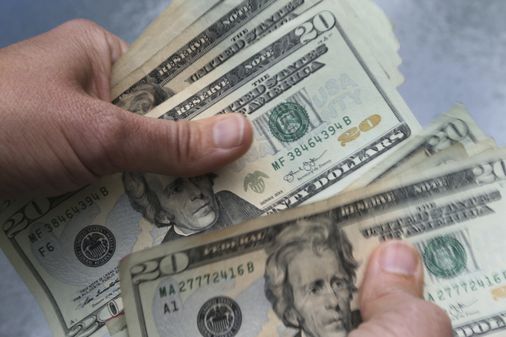Financial shocks can lead you to make decisions you didn’t anticipate or revert to the comfort of old habits. Here are some tips for avoiding the surprises you can control — and surviving those you can’t.
Just do it (your taxes)
It might feel easy put off your 2023 taxes until the spring. But it’s actually way harder than doing your taxes well in advance.
You should have all the information you need to file by by early February. Employers and anyone else that paid you taxable income is supposed to send you whatever records they’re giving to the Internal Revenue Service by Jan. 31 (with a few exceptions). And you probably already have whatever information you’ll need to calculate your deductions.
Why start early? If you’re getting a refund, you can get your money back sooner. But even if you think you’re going to owe money, it’s best to figure out the damage as soon as possible.
Say you figure out in February that you’re going to owe the government $1,000. You still have two months to save up for that tax bill before the filing deadline. You won’t have that luxury if you wait until the last minute.
It’s also worth remembering that a tax surprise can be a sign that you might want to adjust your withholding. That’s the money you put aside (or that your employer puts aside for you) to cover your income taxes.
If you owed money, you can avoid having that happen again. And even though a big tax refund might feel like a windfall, it’s really just evidence that you gave the government an interest-free loan. There are better ways to save money.
Update your budget
What’s getting in the way of your big plans for the year? Chances are that money’s got something to do with it. If you want to devote more time to your family and read more books, maybe you’ve been working too much. Perhaps you’d like to cut back by a few hours a week — if only you could afford it.
The beginning of the year can offer a symbolic clean slate for your finances. You’ve got an entire year to save up for the next holiday gift-giving season, at least. Your credit card debt won’t reset, but the calendar year offers a great time to examine your prior spending and saving.

There are many ways to make a budget: some simple, some daunting. But one way to start the year fresh is with a method known as “zero-based budgeting.”
Basically, with zero-based budgeting, you’re basically starting with nothing other than what’s in your bank account. You use that money to fund near-term financial needs — groceries, housing costs, child care tuition — and then you use what’s left over to pay for luxuries and longer-term goals.
It’s painful at first, but within a few months you’ll have built up enough of a surplus that you’ll start to feel like even unexpected expenses are already paid for. Because they will be. One option you can use for zero-based budgeting is a web-based program called YNAB, or You Need a Budget.
Emergency fund — you have to do it
You know what puts the “fun” in “emergency fund?”
Nothing. It’s the biggest bummer in personal finance. You finally pay down debt and get out from under your immediate obligations only to find that — if you want to be responsible — you still can’t spend your free cash on anything enjoyable.
But having an emergency fund is an annoyingly important safeguard. What would you do if you lost your job? How long could you pay your rent, your car insurance, and your utilities?
That’s what an emergency fund is there for: to keep your life in order while you deal with a financial setback.
So how much do you need in your emergency fund? It depends on your personal expenses — and to a degree how confident you are in your ability to replace at least part of your income in an emergency. But as a very general rule, you’ll want to put aside enough to cover three to six months of basic expenses (this doesn’t include anything you’d cut back on if you have to).
That can add up to a lot, even tens of thousands of dollars. But you can fill your emergency fund over time so you feel it less. Just look back at that budget and contribute when you can.
One final note about an emergency fund. If you are looking to make sure it’s available right when you need it, you’ll probably want to keep it liquid, maybe in a high-interest bank account rather than in an investment fund that could incur taxes or transaction costs if you want to cash out.
Setting up your personal finances is not as exciting as resolving to run a marathon or learn French. It’s true. But once you’re squared away, your plans for 2024 might seem a little more real, and make your resolutions more likely to become reality.
Andy Rosen can be reached at [email protected].

















